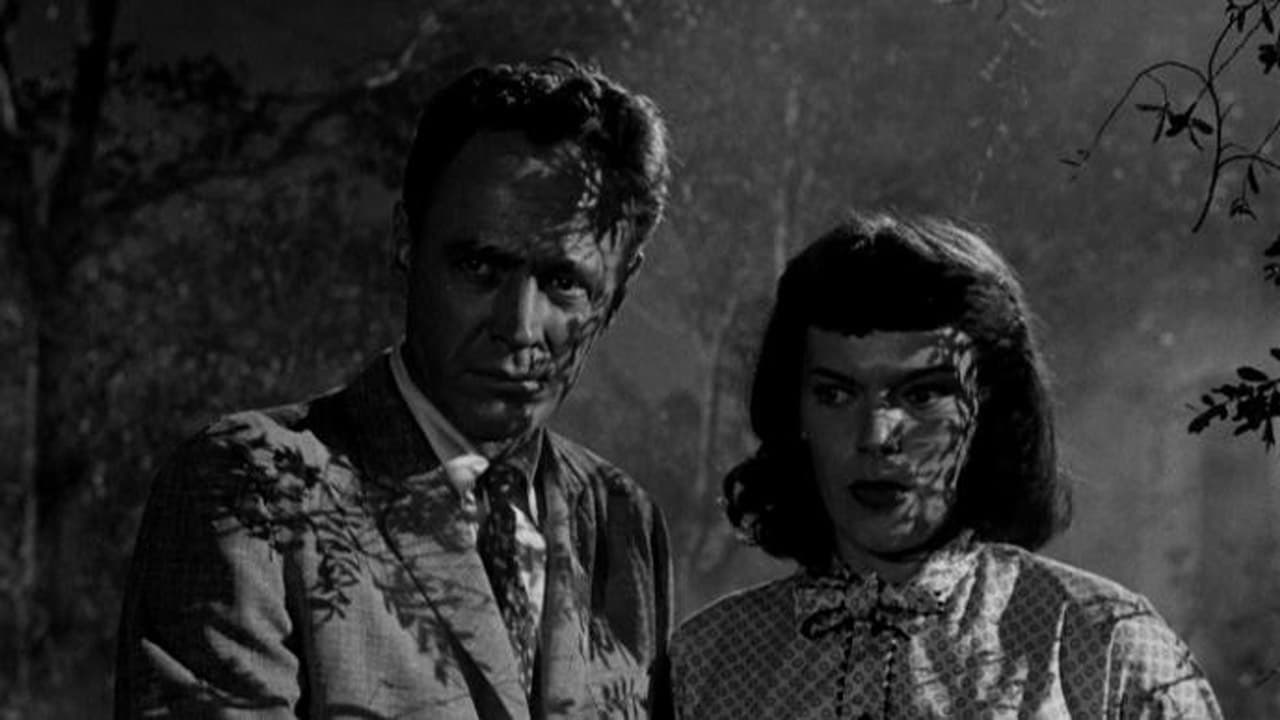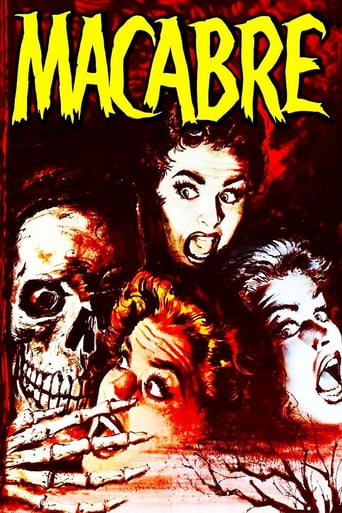Interesteg
What makes it different from others?
Roy Hart
If you're interested in the topic at hand, you should just watch it and judge yourself because the reviews have gone very biased by people that didn't even watch it and just hate (or love) the creator. I liked it, it was well written, narrated, and directed and it was about a topic that interests me.
Jemima
It's a movie as timely as it is provocative and amazingly, for much of its running time, it is weirdly funny.
preppy-3
Dr .Rodney Barrett (William Prince) is a small town doctor. Nobody likes him because they blame him in the deaths of two sisters. He also has an adorable little girl of his own. One day he returns home to find his child is missing. then his friend gets a phone call telling her that the child has been kidnapped and buried alive. The doctor has four hours to find her before she dies.Ideal set-up for a great horror film fails. The acting is terrible, the pace lethargic and the countless flashbacks add nothing to the story. I had figured out halfway through who had done it but didn't know the reason why. This was in the famous movie where viewers were given an insurance policy assuring them that their relatives would receive money if they died of fright. The only thing that anyone would die from would be boredom! Skip it.
Coventry
"Macabre" definitely wasn't the legendary director William Castle's most successful horror accomplishment, as this honor probably goes to either "House on Haunted Hill", "The Tingler" or "13 Ghosts". "Macabre" also wasn't Castle's coolest or most entertaining horror accomplishment, because according to yours truly that special title either goes to "Homicidal", "Mr. Sardonicus" or "Strait-Jacket". But one thing's for sure, namely that "Macabre" was Castle's very first horror flick AND the first time he tried out a nifty little gimmick, which would later become his trademark and his ultimate formula to fame & success. The gimmick here included that all spectators received a special type of insurance against "death by fright" and that a stern voice-over warns about the shocking impact of the film. It's all rather silly and cheesy by today's standards, but Castle's gimmicks quickly proved to be highly effective and he still remains one of the most imitated horror directors now, nearly forty years after his death. "Macabre" itself is extremely simplistic and low- budgeted, like all of William Castle's movies, but the plot is quite compelling and several sequences are drenched in an atmosphere that is … well … macabre! Small town doctor Rodney Barrett is confronted with the ultimate nightmare when he learns that his innocent 5-year- old daughter Marge has been kidnapped and lies buried alive somewhere with only five hours left to live. The doctor, along with his secretary and fragile old father-in-law, starts a frantic search for his little girl at the most obvious location – the local cemetery – but where to dig and who to trust? After all, the good doctor seemingly has quite a few enemies in town, including the rancorous Sheriff Tyloe, and (redundant) flashbacks show that he wasn't very kind to his deceased blind wife Alice. The race-against the clock aspect results in a handful of tense moments and most of all the scenes set at the fog-enshrouded graveyard at night are genuine horror highlights. The flashbacks and some of the plot- twists near the end are pretty dumb and merely raise the impression that William Castle only wanted to stretch the running time a bit, while other sequences (like for example the phone call from the kidnapper and nurse Polly's subsequent report to the doctor) are laughably inept. But who cares, as "Macabre" is a terrific piece of 50s horror and marked the start of the career of one of the most creative minds in cinema history.
LobotomousMonk
A ticking clock visually accompanies a prologue for Macabre as a warning is announced regarding the possibility of fright that could lead to injury for the film spectators. The clock will reappear at intervals throughout the film and is an object from the diegesis of the film (it hangs over the funeral parlor like a theater marquee). The clock was perhaps Castle's most popular motif throughout his career. Macabre is Castle's first gimmick horror film and his first teaming with screenwriter Robb White. They formed an excellent partnership and brought their A-game to B-films. There is creative framing, good blocking/staging of the characters as well as novel lighting setups which help to create an eerie, yet familiar mood (the familiarity makes it all the more eerie of course). Some reviewers have criticized the use of flashback sequences and at first I was inclined to agree about their superfluousness. I reversed myself when I discovered that Christine White's performance was the bulk of what I remembered from the film. She makes an impression as does her dynamic character, caught between childish innocence and vamp seduction. What her character is truly blind to is conscious self-reflection and introspection and this provides a cue for the audience to begin evaluating information differently while experiencing the film. I believe that White and Castle hoped to elicit a sense of suspicion and paranoia for the audience through these plotting techniques. The flashbacks are not convoluted but do certainly contribute to an over-arching contrivance in the plot of the story as it pertains to trysts and family relationships. Other contrivances are just silly - a dying old man wields a devastating cane in a manner that would require the lats of Atlas himself. The contrivances hold up though as does the gimmick Castle employed to generate hype about the film. The beneficiary agreement that patrons signed when attending Macabre is not hokey in the slightest as it connects up perfectly with the story and main plot point of the film itself. "How do I know there was a phone call" is an important line in the film that marks a further progression in the fostering of suspicion and paranoia. These single-minded goals keep Macabre true to its genre and the mood it seeks to create. The second flashback may seem too obvious but it aptly supports the paranoid suspicious mood Castle hopes to propagate through the characters and surely within the audience as well. The main spook of the film is a blink-and-miss-it kind of ordeal and is more relevant as a diversion for closure than as a genuine creator of shock or terror. The final shot of the film is abrupt - curt and discourteous - and is likely the worst shot in the film as a result. It is followed by the most ham-handed part of the film where the voice over narration starts up again, this time reminding - or warning - the audiences to keep their lips sealed about the ending of the film once leaving the theater. I cannot understand this warning because it seems to presume that young people are sufficiently immature to thrill in schadenfreude spoilers while neglecting the recognition that said young people would also necessarily be the types to do the opposite of whatever an adult tells them. Ironically moronic if you ask me. Excellent animation is provided for the end credits and many felt that it was the highlight of an otherwise lack-luster film. I would tend to disagree with that opinion. Macabre is a fun, well-paced, well-directed, well-scripted, well-acted suspense thriller horror film that marks a special time in film history as the B movie attempted to grow some legs at the box office and some independent wings in the creativity department. After watching the dreary Katzman-Castle historical dramas, Macabre is a sight for sore eyes.
Alonzo Church
A doctor in a small town has done a good job of making himself hated because of his role in the deaths of two sisters. When his daughter disappears and a caller announces that she has been buried alive, will the unpopular doctor uncover the MACABRE scheme, or will the cute little girl die a horrible, frightening death?Any movie that dares cast the lovable Jim "Mr. Magoo" Backus as the sort of brutish sheriff that Sterling Hayden could have done in his sleep does have something going for it. Any movie that features a slutty rich blind girl (who makes time with the pool boy AND Jim Backus AND our surly doctor hero) has a definite noir appeal. And the attention paid to clocks and the passing of time shows that the director at least has a concept of how a film might generate suspense.But, a movie with the amount of bad, bad acting this one does, indicates a director perhaps more concerned with the promotion of his movie than the making of it. The logical flaws of the film are really extraordinary, beginning with small things, such as the distance between the small town and its old creepy graveyard, and advancing to the large, such as our hero's steadfast refusal to call the cops. And the final resolution, alas, is more disappointing than surprising. The best thing that can be said about the "promotional" aspects of the film -- mostly a rather campy opening announcement about how really truly scary all this is going to be, and a Charles Adams - like animated closing credit sequence, is that these campy things really don't get in the way.Worth seeing, because the Jim Backus performance is the sort a revelation that can happen when a good character actor is totally cast against type. But the world won't come to an end if you miss this.

